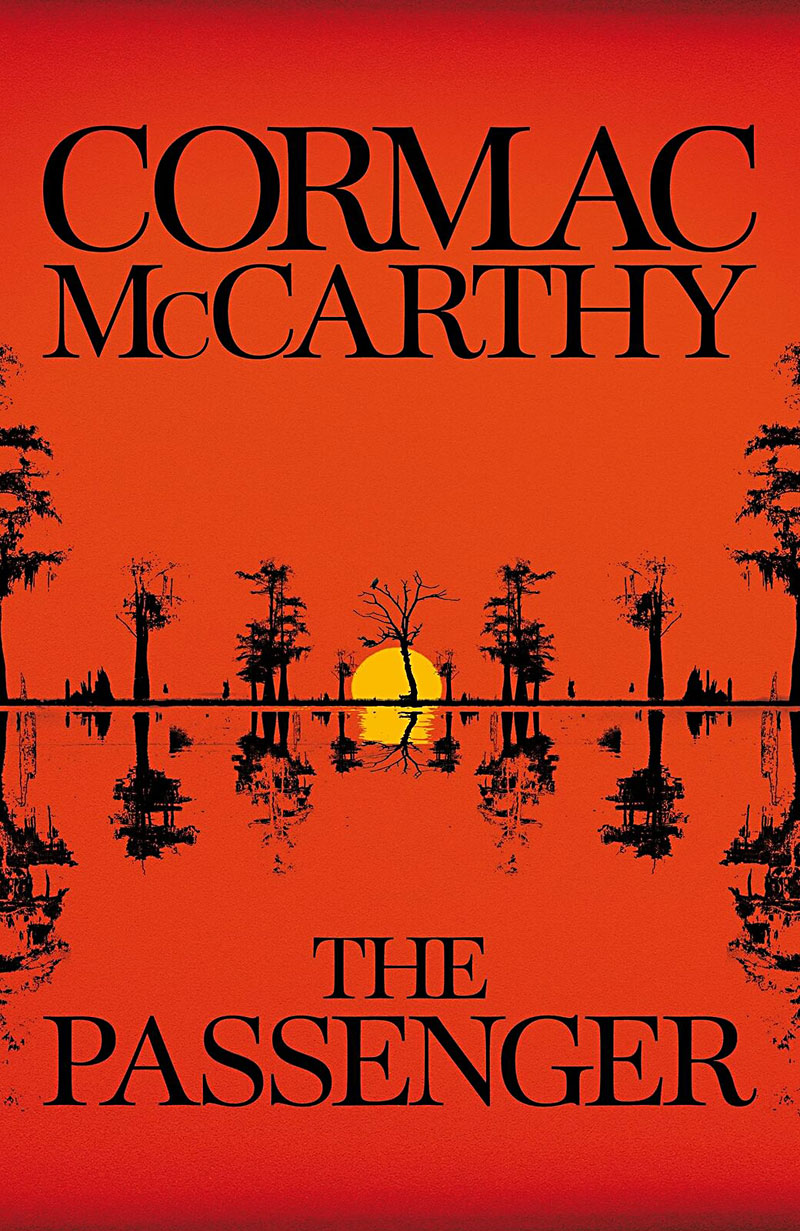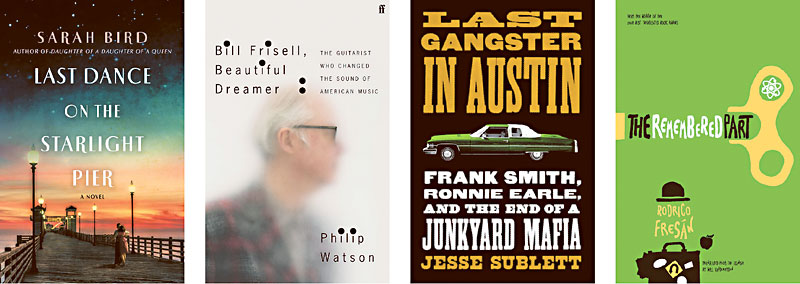Turning the Page on the Year in Books
New works by Cormac McCarthy and Sarah Bird make for a memorable year in literature
By Jay Trachtenberg, Fri., Dec. 16, 2022
It's always a literary event when a new Cormac McCarthy book arrives, especially in light of his absence from the scene since winning the Pulitzer Prize for Fiction with the 2006 postapocalyptic mind melt, The Road. His new fiction The Passenger (Knopf, 400 pp., $30) is the first of two conjoining novels, the second of which, Stella Maris (Knopf, 208 pp., $26), has just been published. While not nearly as bleak as its predecessor, you wouldn't characterize The Passenger as bright and uplifting either. The story centers around Bobby Western, a laconic salvage diver based in New Orleans, and his ongoing grief at the loss of his suicidal, schizophrenic sister Alicia. The narrative moves back and forth from Western's various travails in the wake of an unusual discovery on one of his dives to Alicia's hallucinatory and often comical encounters with "The Kid." We know Alicia's fate from page one, but her brother's journey unfolds largely through his meetings in dingy French Quarter bars and classy restaurants with various old friends, acquaintances, and colleagues. While the reticent Western leaves most of the talking to others, topics of discussion range from quantum physics to the JFK assassination to who might be shadowing our protagonist. The specters of mortality and death are never far from the surface. McCarthy obviously knows his way around New Orleans, and Western's trip back to Knoxville, Tennessee, is a reminder that the author's first several novels are set in that part of Appalachia. Regardless of physical setting, however, McCarthy always places you in his own singular world of impending darkness and moral opacity.
On a more redeeming note, Austin writer Sarah Bird takes us back to Depression-era Middle America in her enthralling novel Last Dance on the Starlight Pier (St. Martin's Press, 432 pp., $28.99). Set primarily in Galveston in the early 1930s, we can't help but get caught up in the aspirations of former child vaudevillian Evie Grace Devlin as she attempts to make something of her life helping others as a nurse only to be caught up in the seedy world of marathon dances. Although awash in chicanery and deception, it is within this milieu of struggling misfits that she finds the supportive family she never had growing up. Bird does a wonderful job of fleshing out a memorable array of characters while creating a vision of heartland America fraught with misery, uncertainty, and hope. This is a fast-paced, most enjoyable read.
My favorite nonfiction venture this year was Irish writer Philip Watson's marvelous biography, Bill Frisell, Beautiful Dreamer: The Guitarist Who Changed the Sound of American Music (Faber & Faber, 560 pp., $30). The anything-but-flamboyant musician has forged an unquestionably unique sound and flexible style that we've been most fortunate to behold on his regular visits to Austin over the past 30 years. Watson's approach is threefold with a standard, chronological examination of Frisell's life interspersed with chapters about him personally and then periodically included shorter segments featuring the likes of Paul Simon or filmmaker Gus Van Sant listening to and commenting upon a specific Frisell album, adding their own personal experiences with the guitarist. Recommended to open-minded music fans of all stripes.
For a gritty slice of old Austin it's hard to top Jesse Sublett's true-crime saga Last Gangster in Austin: Frank Smith, Ronnie Earle, and the End of a Junkyard Mafia (University of Texas Press, 224 pp., $21.95 [paper]). A writer of hard-boiled crime fiction himself, Sublett unfolds a well-researched, noir-ish tale of criminality, malfeasance, and corruption in 1970s Austin. It comes replete with a cast of larger-than-life characters and an uncanny sense of a good ol' boy, pre-ATX Austin. He does right by the story's hero, Travis County District Attorney Ronnie Earle, who in his 30 years on the job would oversee a long overdue progressive and innovative overhaul of the local criminal justice system.
I'm closing out my reading for this year by diving headlong into the gargantuan finale of Buenos Aires-born, Barcelona-based writer Rodrigo Fresán's head-spinning trilogy, The Remembered Part (trans. Will Vanderhyden, Open Letter, 760 pp., $19.95 [paper]). As in its predecessors, The Invented Part and The Dreamed Part, Fresán takes us on a literary free-for-all that blasts through time and space in a virtual stream-of-consciousness phantasmagoria that compels the reader to hold on for dear life. Fresán's alter ego, the Writer, is again our guide through this labyrinthine narrative that is bursting at the seams with pop culture references, wondrous wordplay, literary cameos, and critiques of every imaginable sort. The trio of titles for this dazzling triptych pays homage to the writing process, and together they constitute a joyous celebration of the written word aimed directly at those dwindling numbers of us who still find reading to be one of the absolute pleasures in this life.











